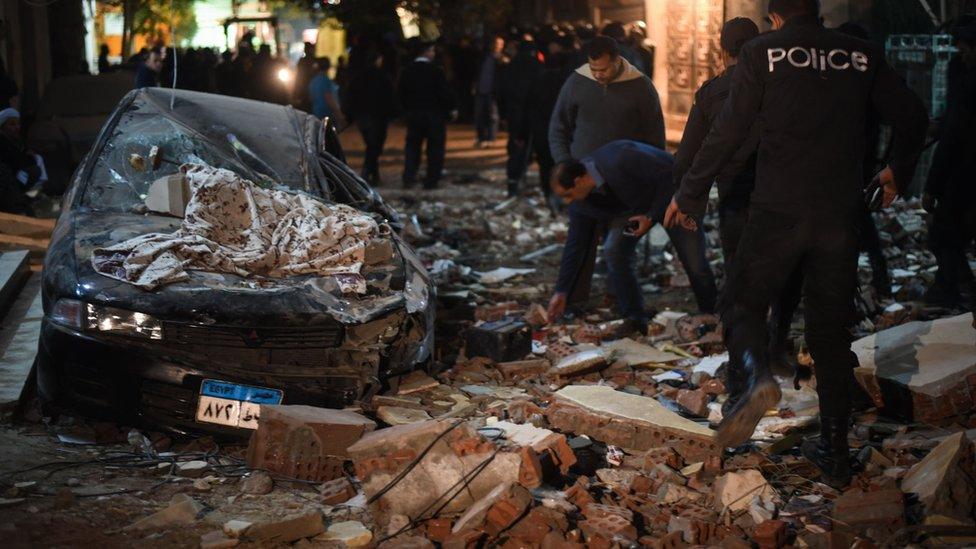Egypt's revolutionaries - where are they now?
- Published
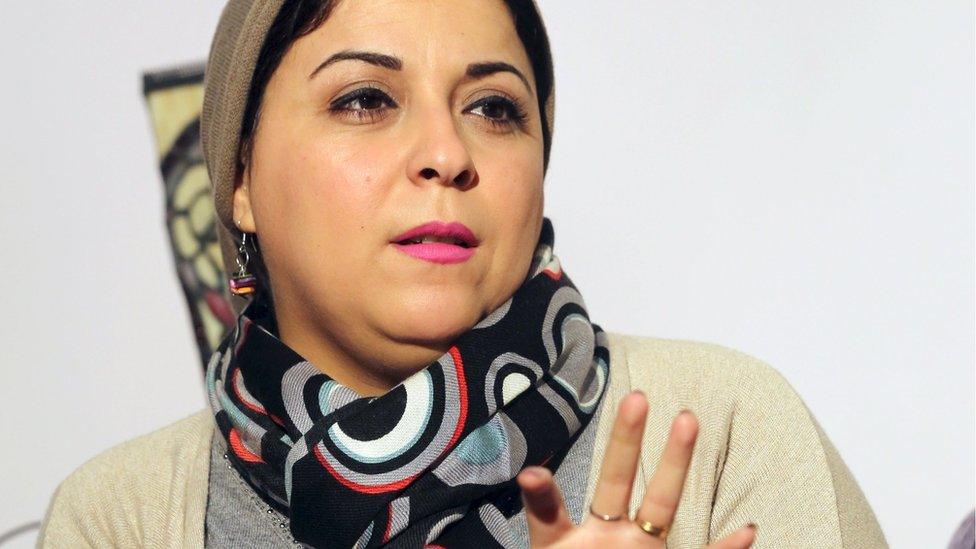
Esraa Abdel Fattah says "some people consider us as traitors and agents"
Five years on, the activists who spearheaded the protests in Egypt that led to the overthrow of President Hosni Mubarak have met different fates.
Many are in prison or have fled abroad, while others are restricting their activism to social media.

Prison sentences
Pro-democracy activist Alaa Abdel Fattah was sentenced to five years in prison last February for violating a 2013 anti-protest law.
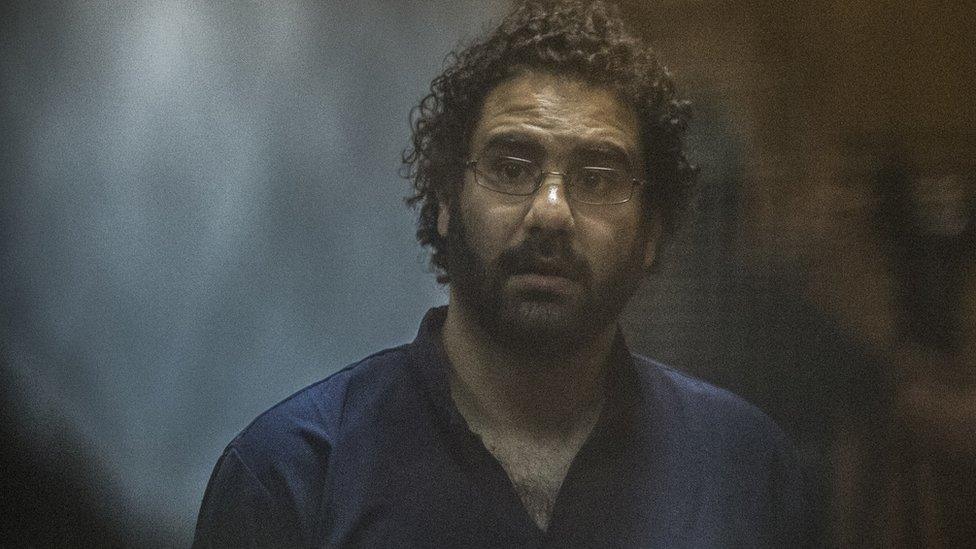
Alaa Abdel Fattah is "very upset" by what is happening in Egypt, his mother says
He was a leading secular figure in the 2011 uprising. Since his imprisonment, calls for his release have regularly trended on social media.
His mother, Laila Soueif, says her son "feels very upset for his son, family and what is happening in the country".
"None of the goals of the revolution have been achieved," Mrs Soueif explains. "The current regime is the most abusive Egypt has ever seen."
Ahmed Douma also played a key role in the uprising and was jailed for life in February after being convicted of rioting, inciting violence and attacking security forces.
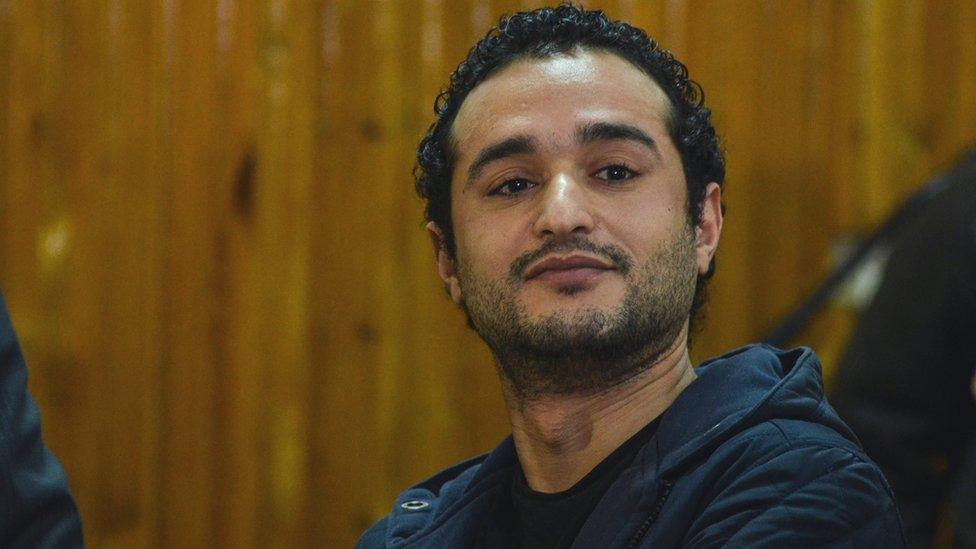
Ahmed Douma's wife says he still believes in the "dream of change"
He was already serving a three-year prison sentence for organising protests without a permit.
His wife, Nurhan Hifzi, says he is "frustrated after spending two years in jail", but still believes in the "dream of change".

Working abroad
Wael Ghonim is an activist who has found refuge by leaving Egypt.
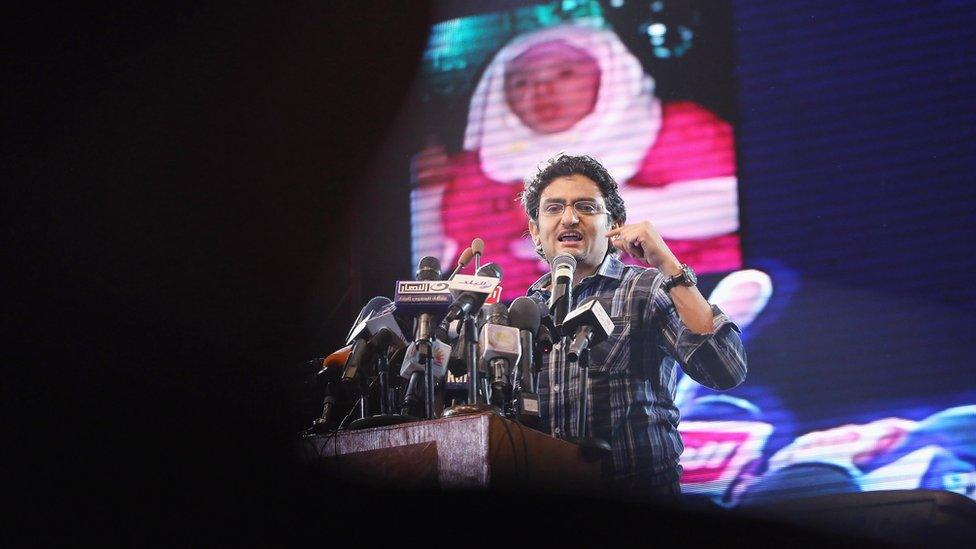
Wael Ghonim says "post-revolution events were like a punch in the gut"
The former Google executive was seen as the man who helped trigger the uprising with the "We Are All Khaled Said" Facebook page, which called for demonstrations in January 2011 to protest against the beating to death of a man by two plainclothes police officers the previous June.
Despite his role, Mr Ghonim left Egypt after the fall of Mubarak and stayed out of the spotlight.
"Unfortunately, the post-revolution events were like a punch in the gut," he says.
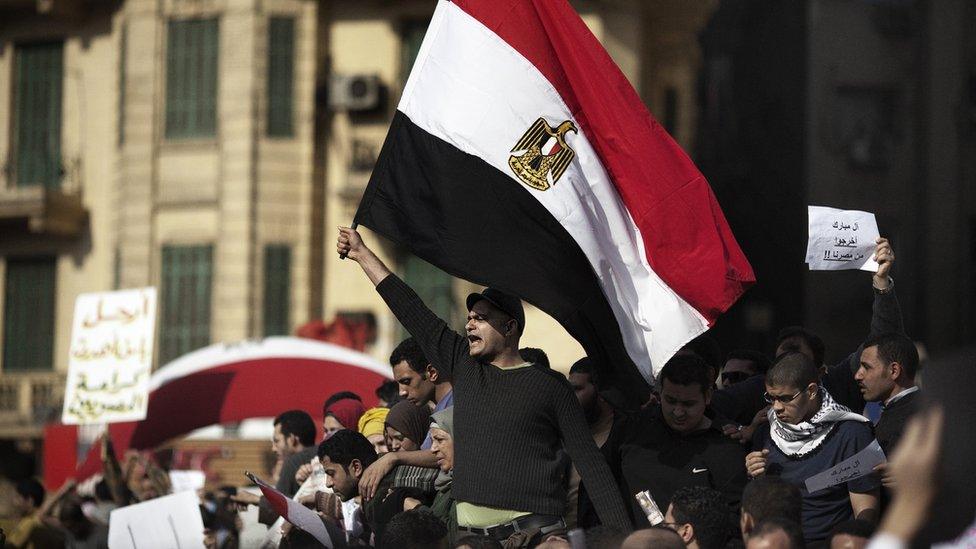
Anti-government demonstrators in Tahrir Square, Cairo in January 2011
The situation worsened after the overthrow by the military of President Mohammed Morsi in 2013, Mr Ghonim adds.
"It was a moment of defeat... I stayed silent for more than two years."
Mr Ghonim lives in the US and recently set up an online platform with an anti-government stance.

Online activism
Another face from 2011 is Esraa Abdel Fattah, a co-founder of the 6 April Movement that was at the forefront of the 2011 uprising.
"Five years after the revolution, some people consider us as traitors and agents," she says.
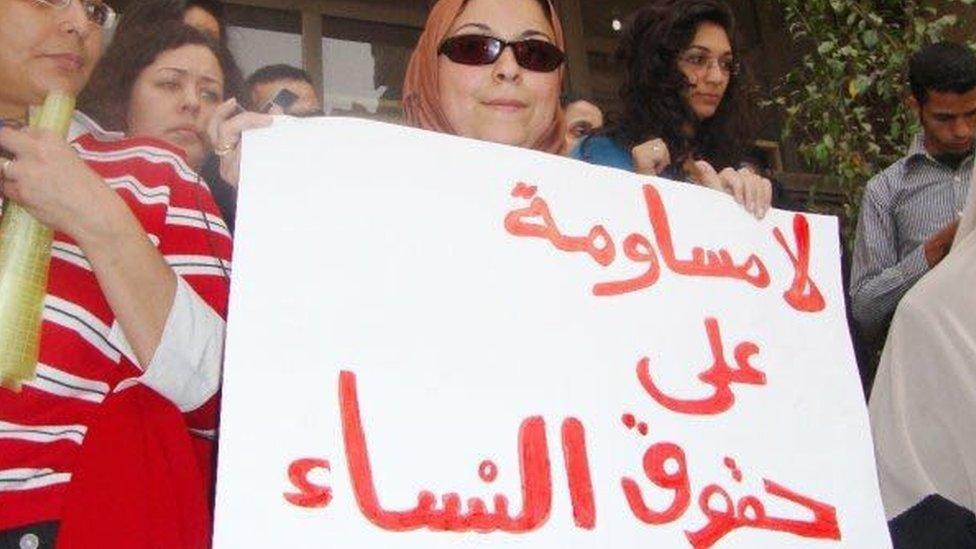
Esraa Abdel Fattah's sign reads: "No negations on women rights"
She blames the media for portraying the uprising as a "conspiracy that undermined the stability of Egypt".
Ms Abdel Fattah is still active on social media, but says: "The political climate is not conducive to practising politics... What is happening now is the resurrection of the Mubarak regime."
Wael Abbas uses the internet to publicise human rights abuses and police brutality in Egypt. He is considered one of Egypt's most influential political bloggers.
But, today, Mr Abbas says he is "waiting for a miracle".
"This regime rules us by the gun... Parliament is in the grip of the authorities."

Continuing struggle
Other activists still strive to realise the revolution's goals.
Khalid Talima is one of them. He was deputy youth minister in 2013 but now works as a presenter at Egypt's private ON TV.
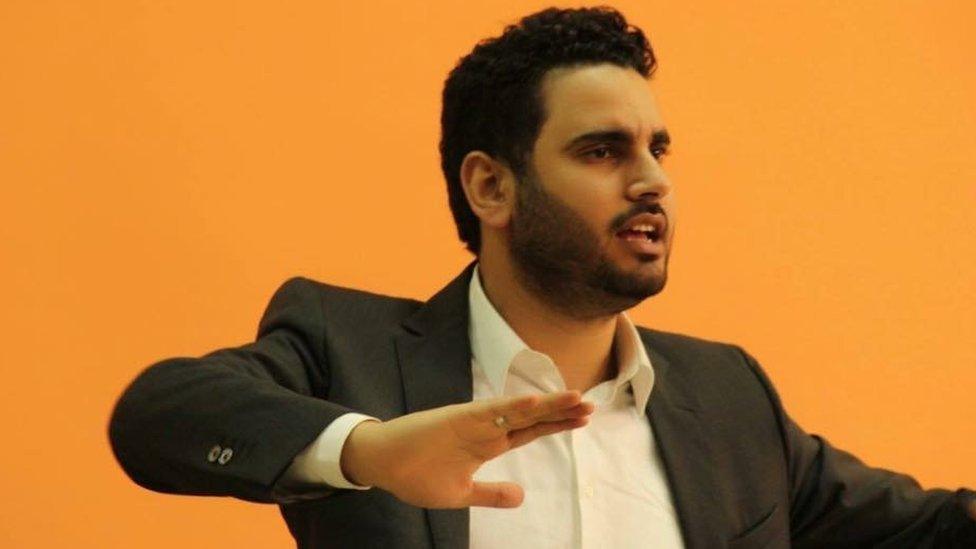
Khalid Talima says his "belief in the January revolution is unwavering"
"None of the revolution's goals has been achieved," he says. "We still have issues regarding freedom, but we will continue to call for their implementation."
"My belief in the January revolution is unwavering."
BBC Monitoring reports and analyses news from TV, radio, web and print media around the world. You can follow BBC Monitoring on Twitter, external and Facebook, external.
- Published25 January 2016
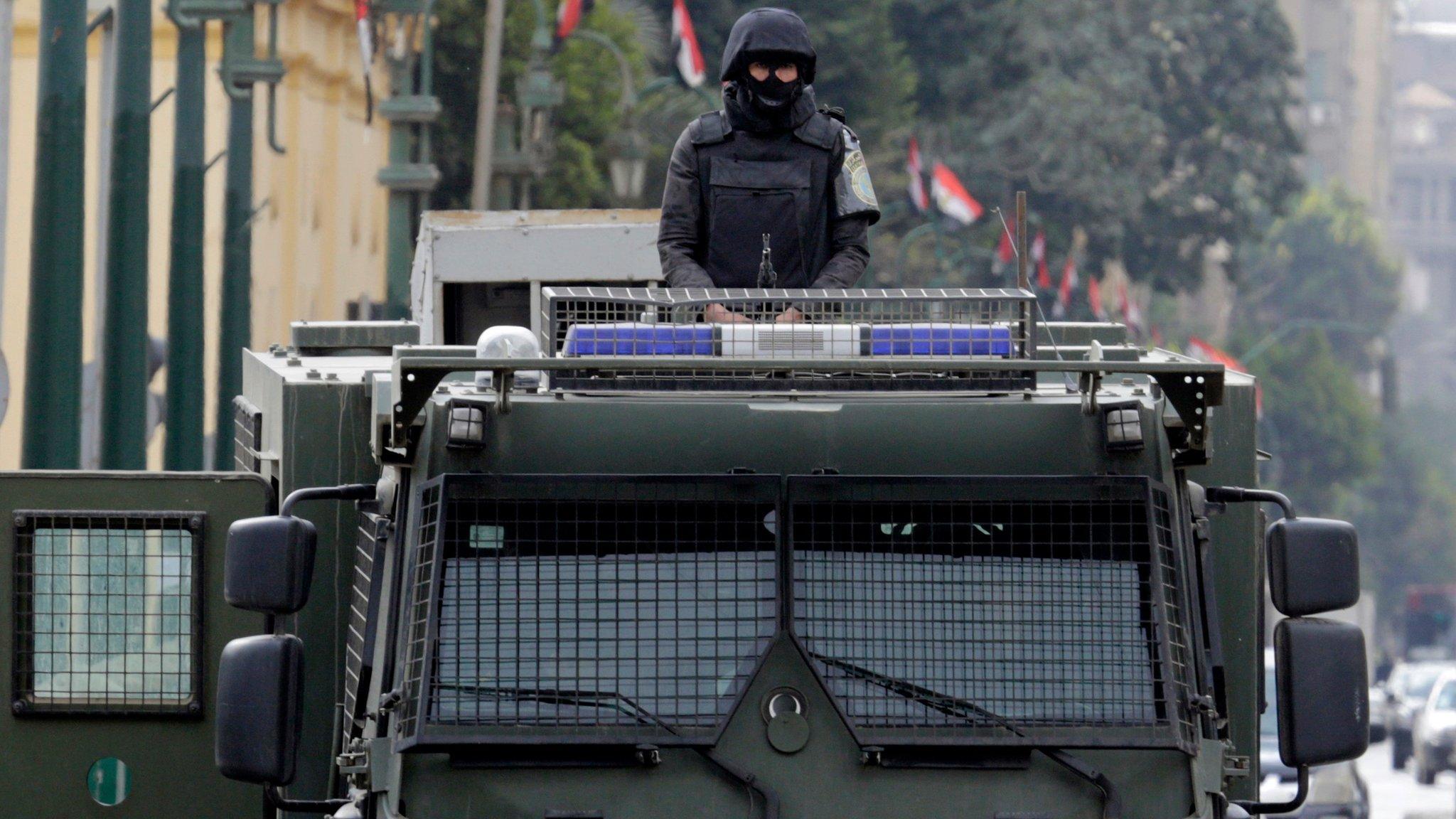
- Published25 January 2016
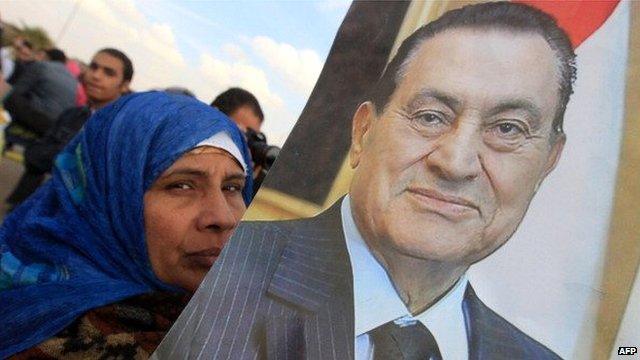
- Published22 January 2016
